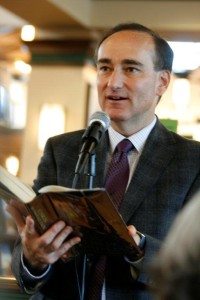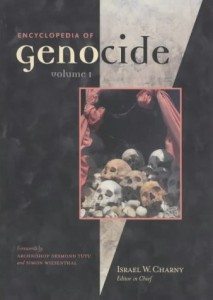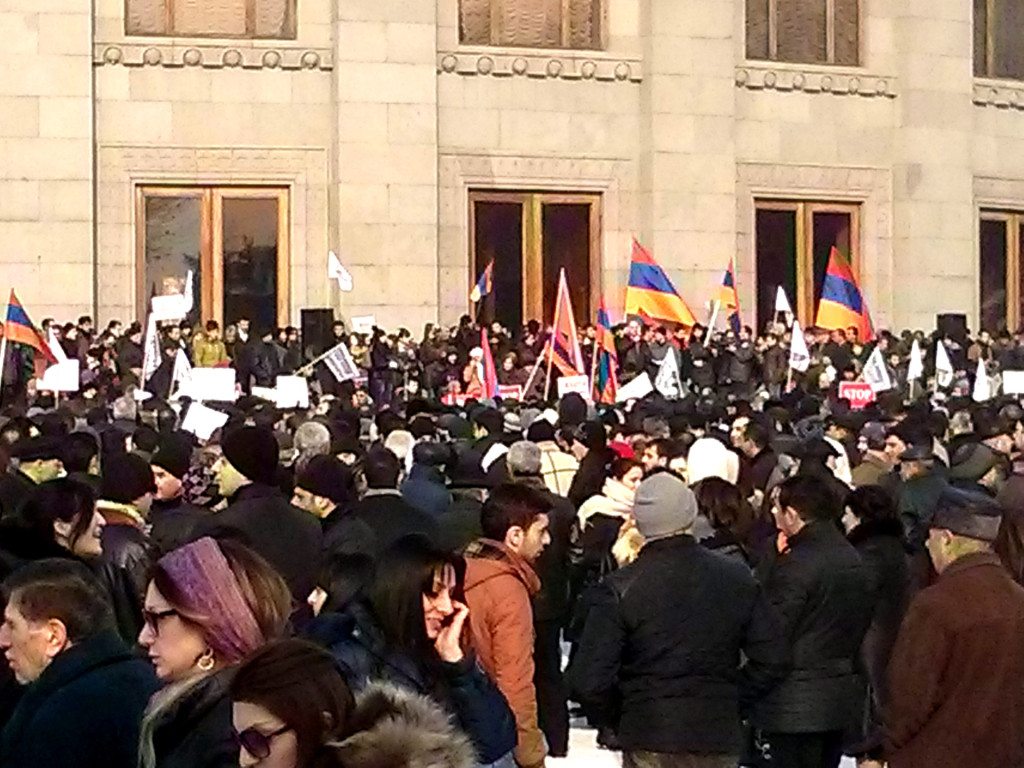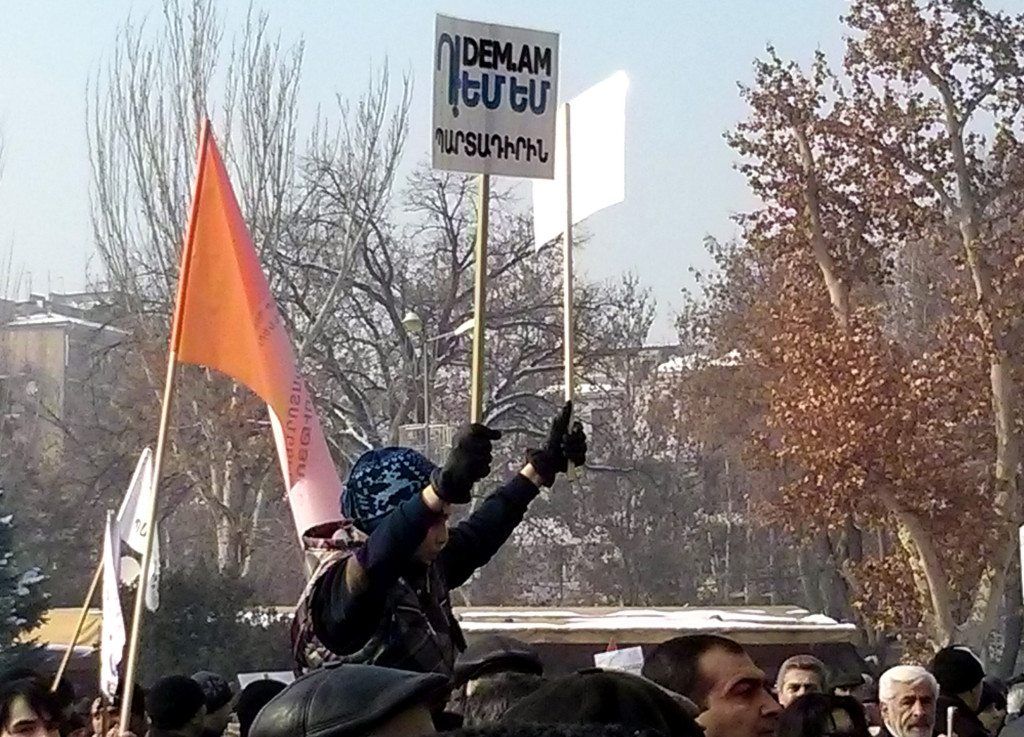Human Rights Association of Turkey Urges Switzerland to Appeal European Court Decision on Genocide Denial
ISTANBUL, Turkey (A.W.)–The Human Rights Association (HRA) in Turkey issued a letter addressed to the Swiss Minister of Justice, expressing the organization’s disappointment with the decision of the European Court of Human Rights (ECHR) on Armenian Genocide denial.
“As human rights defenders in Turkey, we are the most immediate, most direct witnesses of how the denial of the genocide against Amenians and other Christian ethnic groups of Asia Minor has right from the start generated an anti-democratic system, allowing racist hatred, hate crimes and violation of the freedom of expression and the human rights in general,” argued HRA in a copy of the letter received by the Armenian Weekly.
HRA concluded: “In the name of human rights, of the struggle against racist hatred and of justice in Turkey and elsewhere, we would like to express our belief that the Swiss Court’s decision to penalize Doğu Perinçek’s denialism was a step to protect us all, the entire humanity against racism, and our heartfelt support to Swiss Court’s exercising its right to appeal against the ECHR decision dated 17 December 2013.”
Below is the full text of the letter.
***
To:
Mrs. Simonetta Sommaruga
Minister of Justice and Police of the Swiss Confederation
Prof. Dr. Frank Schürmann
Chief of the Division European Law and International Protection of Human Rights, the Federal Office for Justice
We, as the Human Rights Association in Turkey (HRA), are writing this letter to you to express our disappointment at the European Court of Human Rights’ (ECHR) decision dated 17 December 2013 rejecting the Swiss court decisions of 2007 to penalize Doğu Perinçek’s denial of the Armenian genocide and our unconditional and firm support of Swiss jurisdiction’s using its right to appeal against ECHR’s decision.
As human rights defenders in Turkey, we are the most immediate, most direct witnesses of how the denial of the genocide against Armenians and other Christian ethnic groups of Asia Minor has right from the start generated an anti-democratic system, allowing racist hatred, hate crimes and violation of the freedom of expression and the human rights in general.
In the case of the successive governments of the Republic of Turkey, the ultra-nationalists and the Turkish public loyal to the official thesis, denial is not just to say “We didn’t do it” or “What we did was no genocide.” Here in Turkey denial means criminalizing the victims and encouraging hatred towards Armenians. In other words denial becomes the continuation of the genocide and the genocidal intent in Turkey. In order to deny the genocide, the system argues and urges the society to believe that:
(i) It is the Armenians to blame, i.e., they deserved what they got.
(ii) Armenians are the enemies of Turkish people.
(iii) Armenians stabbed the Ottomans and the Turks in the back, they are treacherous and what was done to them was a war-time necessity for the survival of Turkey.
(iv) Armenians, both at home and abroad, are still a threat to the Republic of Turkey and Turks.
Not a passive, peaceful denial but aggressive onslaught
Consequently in Turkey denial is not just a passive position, but it is an active aggression, creating a racist environment fully exposed to sheer violence. This has paved the way for Armenians in Turkey to be treated as a “fifth column” throughout the Republican history, to be discriminated against, to be destined to lead their lives in constant fear as their lives were threatened during various nationalist upheavals and pogroms that took place during the Republican period. The word “Armenian” has become a word of curse so widespread to include an interior minister of the Republic who openly used it in public (in 1997 by Meral Akşener). This racist hateful environment led to not only verbal but physical assaults on Armenians. Hrant Dink, the chief editor of Agos, the first and only Armenian weekly newspaper published in Turkish in Republican history, and a prominent supporter of human rights, democracy and freedom of expression was assassinated in cold blood in 2007, although he had always been against hatred and animosity on the part of Armenians towards Turks, advocating instead a reconciliatory stance of mutual understanding. The Armenian private Sevag Şahin Balıkçı, was shot dead on 24 April 2011 (i.e. on the day when Armenians worldwide commemorate the beginning of the genocide of 1915) while doing his military service in the Turkish army in southeast province Batman by another Turkish private. The investigation leading to trial was totally untrustworthy, as the witnesses’ superiors putting pressure on them to confirm the suspect’s statement that it was an “accident” was reported in the newspapers. The court decided that the intentional murder was a result of “gross carelessness,” disregarding all evidence that it was a hate crime, and sentenced the suspect to only 5 years’ imprisonment. Another incident took place on 26 February 2012 when, orchestrated by Turkish and Azerbaijani governments, a big demonstration took place on Taksim square, the largest and most central square in Istanbul, for condemning the “Khojaly Genocide,” the massacre of civilians in Karabagh that Armenian and former Soviet troops allegedly committed ten years before. During the rally, which was announced days before by means of posters bearing the slogan: “Don’t believe Armenian lies” posted all throughout Istanbul, anti-Armenian slogans containing hate speech were chanted and professionally printed signs that read “You are all Armenians, you are all bastards” were carried, in reaction to the slogan “We are all Armenians,” which had been chanted at the funeral of Hrant Dink. In 2013, within one and a half month, four elderly Armenian women were attacked in Samatya, a neighborhood with a high agglomeration of Armenians, cruelly beaten, until one of them died from heavy beating with numerous deep fatal cuts on her body inflicted by a sharp object. In short, persistent denial of genocide is the main reason for the Armenians’ threatened existence in Turkey, a reason provided by the official narrative itself.
On the other hand, the ECHR decision establishes that the Armenian genocide is somehow disputable, arguing that the denial of events which are not qualified as a genocide cannot provoke racist hatred.
However this is not what Doğu Perinçek and the “Talaat Pasha Committee” (named after Talaat, the main author of the Armenian genocide), of which he is one of the leaders have been doing since the Committee’s inception. They deny all the sufferings and horrible massacres—genocide or not—and thus openly insult the victims and their descendants. They deny all the sufferings of the Armenian people under Turkish rule and declare that what had happened to them is an “imperialist lie.” They deny the extermination of the Armenian people and their civilization, playing a vital role in the Ottoman Empire not only demographically, but economically, culturally. In other words, it is not a question of naming what happened to Armenians, it is a question of denying their very existence, their historical heritage and the enormous contribution they made to the country they were an integral part of.
Talaat Pasha Committee already condemned by the European Parliament
Perhaps most important of all, is the European Parliament’s resolution dated 27 September 2006 on the EC Progress Report on Turkey, where Turkey was called to put an end to the racist and xenophobic Talaat Pasha Committee’s activities. The according paragraph reads: “[The European Parliament] strongly condemns the xenophobic and racist Talaat Pacha Committee, run by extreme right-wing organisations, for gravely infringing European principles, and the denialist demonstrations in Lyon and Berlin organised by those same organisations; calls on Turkey to abolish this committee and to end its activities.” (See: http://www.europarl.europa.eu/sides/getDoc.do?pubRef=-//EP//TEXT+TA+P6-TA-2006-0381+0+DOC+XML+V0//EN#def_1_2)
It is clear that the Talaat Pasha Committee where Doğu Perinçek was one of the founders and leaders was condemned with the above words by the European Parliament itself. We, as the human rights defenders of Turkey would expect the ECHR to take into consideration the European Parliament’s official views as referred to above.
Coming back to the ECHR decision, we would like to draw your attention to the opposing opinion of two ECHR judges. The main arguments in their dissenting opinion were (paraphrased by ourselves in English based on the original document in French) as follows:
- To accuse the victims of distorting history is an invitation to most violent racist defamation and hate. The sufferings of an Armenian due to the Ottoman Empire’s genocide policy is not less serious than those of a Jew under the Nazi’s genocidal policies. Denial of the Meds Yeghern (“Great enormity,” i.e. “infamous crime” in Armenian) is not less dangerous than the denial of Shoah.
- The defendant has openly denied the Armenian genocide as an “international lie,” accused the Armenian people of aggression towards the Turkish state and stated that he supported Talaat Pasha’s ideas. His statements provoke a grave intolerance and hatred against a defenseless minority. The Defendant declared that he would never recognize the Armenian genocide even if an expert or academic committee decides on the existence of such a genocide.
- Expressions such as “international lie,” “historic lie,” “imperialist lie” obviously go beyond the acceptable boundaries of freedom [of] expression, because these expressions declare the victims to be “liars” and suggest an international conspiracy against Turkey or Turks. Besides, D. Perinçek’s identification with a major genocide perpetrator, who in 1919 was sentenced to death for crimes against humanity by an Ottoman court makes the situation even more repugnant.
The dissenting judges refer in their statement to our Association’s press release of 24 April 2006 (the commemoration of the Armenian Genocide) as follows (again a paraphrase of the original document in French):
“Tolerance to denialism is to ‘kill the victims for the second time,’ as Elie Wiesel puts it, or ‘denialism is part of the genocide and enables the perpetuation of the genocide. Denial of genocide is in itself a violation of human rights,” as Human Rights Association, Turkey, had declared in their press release dated 24 April 2006 for the commemoration of the Armenian Genocide.”
Talaat Pasha Committee: an organisation of violent action
Genocide denial, as indicated above, directly contributes to the racist hatred environment in Turkey. Furthermore, the Talaat Pasha Committee is anything else than an organisation of peaceful “thought,” or a think tank. It operates on active, sometimes violent militant denialism. Members of the Labour Party led also by Doğu Perinçek have raided and sabotaged meetings related to the Armenian “question.” In 2005 for the first time in Turkey a conference had been organised with the title “Ottoman Armenians during the decline of the Ottoman Empire.” Although the term genocide didn’t appear neither in the conference title, nor in any of the papers presented there, the Labour Party militants, who would soon become part of the Talaat Pasha Committee demonstrated outside the conference building, shouting denialist slogans and hatred towards the organizers, throwing eggs and tomatoes against those who left the conference. The Committee organised demonstrations in 2007 in France, Germany and Switzerland to protest against “Armenian genocide lies,” insulting genocide victims’ memories, hurting the feelings of their children and grandchildren. Doğu Perinçek’s Labour Party members had in 2009 also staged a demonstration against our press conference in Ankara. The meeting was hosted by our association HRA and the Ankara Initiative for Freedom of Expression on Friday June 26, 2009. Our guests were Lord Avebury, the then vice-chairman of the Human Rights Group in the British Parliament, and historian Ara Sarafian from the Gomidas Institute, London, the publisher of the uncensored edition (2000; 2005) of the 1916 parliamentary “Blue Book,” titled The Treatment of Armenians in the Ottoman Empire 1915-16, a collection of first-hand testimonies of the Armenian genocide compiled by Viscount Bryce and Arnold Toynbee. In the press conference it was declared that the copies of the Turkish translation of the book were sent to the members of the Turkish Parliament (who in 2005 had signed a letter to the British Parliament arguing that the Blue Book was a wartime propaganda material and a mere fabrication, and for that reason the current British parliament should formally withdraw it) “in an effort to enable them to be better informed about their subject matter.” While the press conference was going on, the Labour Party members gathered in front of our Human Rights Association offices in Ankara, chanted slogans against “false Armenian genocide allegations,” harassing and alarming both the audience and our guests from abroad, Sarafian and Lord Avebury. In the meantime, the copies of the “Blue Book” sent were not delivered to the Turkish parliamentarians, thus it became clear that the Turkish Grand National Assembly refused to discuss the witness reports in the book. .
ECHR decision encouraged racist denialism
What is very alarming and unacceptable is that the ECHR’s decision to acquit Doğu Perinçek has fueled hostility against Armenians in Turkey. The Talaat Pasha Committee held a meeting for the first time after many years, on 19 January 2014, on the 7th anniversary of Hrant Dink’s assassination. The headline of the press report read: “This is only a beginning. New victories are on the way!” It is reported that Doğu Perinçek, sentenced to 117 years’ imprisonment in Turkey, had reportedly sent a message to the meeting saying: “We will now get out of the circle [that limits our mobility] and encircle/besiege Turkey’s enemies and win victories on every front.” In the statement issued during this meeting the Committee misled the Turkish public by claiming that the ECHR decision had confirmed that the Armenian genocide was a lie, whereas in fact the Court only ruled that the Armenian genocide is open to debate and its denial was within the boundaries of freedom of speech.
Members of Doğu Perinçek’s Labour Party reappeared right after the ECHR decision and ambushed a meeting on 1 February 2014 organised by “Say Stop to Racism and Nationalism” initiative with the topic “Why should states apologize?” chanting denialist slogans such as “Armenian Genocide: an American Lie.”
We call on the the Swiss authorities to appeal against ECHR decision
The reason for us to take your time and give an account of the denialist history of Doğu Perinçek and the Talaat Pasha Committee, is to underline that denial of genocide cannot be considered as a simple disagreement of views. This land that is now Turkey, was a land where at the turn of the 19th century one of every 5 residents was a Christian, corresponding to the 20% of the overall population. Now the proportion is below 0.01%! Under these circumstances denialism, which is woven in the very texture of the society, provokes racism and hatred against Armenians, threatens those who challenge the official theses and constitutes one of the biggest obstacles to democratization which is a precondition of Turkey’s membership to EU. In this context we would also like to quote the European Parliament’s resolution of 1987 in which the acknowledgment of the Armenian genocide was named as a pre-condition for Turkey’s admission to the EU. (see http://www.europarl.europa.eu/intcoop/euro/pcc/aag/pcc_meeting/resolutions/1987_07_20.pdf)
In view of the above we, as the Human Rights Association in Turkey, in the name of human rights, of the struggle against racist hatred and of justice in Turkey and elsewhere, we would like to express our belief that the Swiss Court’s decision to penalize Doğu Perinçek’s denialism was a step to protect us all, the entire humanity against racism and our heartfelt support to Swiss Court’s exercising its right to appeal against the ECHR decision dated 17 December 2013.
Sincerely yours,
Öztürk Türkdoğan
Chairman,
Human Rights Association
TURKEY



















